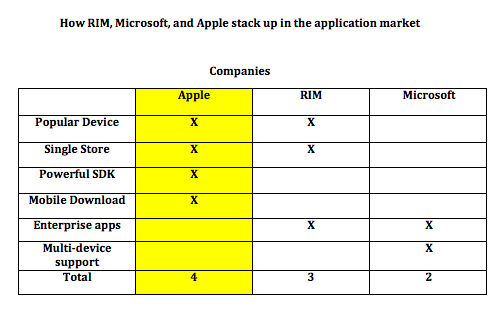
Now that Apple has enjoyed some success with its App Store, smartphone manufacturers are starting to realize that having such a service is a worthwhile endeavor. An App Store with the right ingredients for success not only makes people want to buy the smartphone more than others, but it offers a new revenue-sharing opportunity that could become extremely lucrative.
Perhaps that’s why Microsoft’s new store for Windows Mobile 7, called Skymarket, leaked today. And it’s also why Google announced late last week that it was planning on launching the Android Market to compete with Apple’s store. Each and every company going after the mobile Web is trying to do what Apple has done with its own App Store.
If nothing else, the App Store has shown that there really is a recipe for success in this space. What is that recipe? At this point, success in the Mobile App Store market requires:
1. A popular device.
2. A single marketplace where users can find any application they want in one location.
3. A developer platform that’s both easy to use and powerful enough to create fantastic apps.
4. A dose of enterprise applications.
5. The ability to deploy the same applications on multiple devices.
6. The ability for users to download applications wirelessly to their device from a Wi-Fi or 3G connection.
Apple has most of these ingredients and is performing extremely well in the app market, but its competitors — RIM and Microsoft — seem lost. Both companies have applications that can be downloaded from countless places on the Web, the applications simply aren’t as usable as iPhone apps, and there’s no simple way to add applications to the phone without connecting it to your computer. (Update: To clarify and echo what some commenters have noted, BlackBerry owners can download apps over-the-air and do so on a daily basis.)
While Apple wins out in most of those categories, Microsoft and RIM can still stand up in a few where Apple isn’t quite so strong. For example, Apple’s applications appeal mainly to the consumer, but RIM offers the enterprise solutions that have been left out of Apple’s store so far. But in the end, it’s Apple that reigns supreme in the app store market and will continue to force the others to modify their offerings and catch up.
